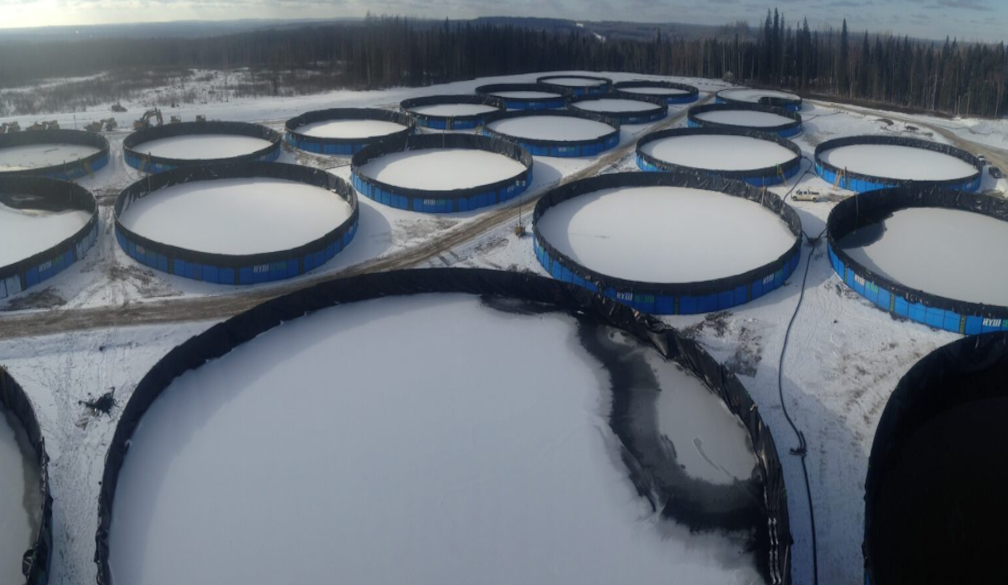Maximize industry efficiency by implementing top-notch fluid storage systems.

Running a long-lasting and effective industry can be difficult with the current challenges of costly energy, tight regulations, and mounting competition. While one solution may not fix all of your problems, using best fluid storage systems can provide numerous advantages to ensure successful operations. Through high quality storage solutions that are designed to address efficiency, reliability and safety concerns throughout the entire process life cycle – from initial design through installation -- you can reduce costs while enhancing industry effectiveness. Keep reading to learn more about how these storage systems work and what they offer for businesses in various industries.
Identify the requirements of your industry when considering fluid storage systems
When it comes to choosing the right fluid storage system for your industry, there are a few key requirements that you should keep in mind. First and foremost, it's important to consider the type of fluid you'll be storing. Some fluids, such as gasoline or oil, require specific materials and designs to ensure safe containment. Additionally, you'll want to consider the size of your operation and the amount of fluid you'll need to store at any given time. Finally, it's crucial to think about compliance with industry regulations and standards, as failing to meet these requirements could result in serious consequences for your business. By carefully considering these factors, you can choose the best fluid storage system for your needs and ensure optimal safety and efficiency in your industry.
Understand the different types of tanks and accessories available for storage purposes
Storage tanks come in a variety of types and sizes, for most info visit: https://hydrera.com/ and each serving a different purpose depending on what you need to store. From water tanks to fuel tanks and everything in between, it's important to understand the differences between them and the accessories that are available to ensure that you select the right tank for your needs. Some tanks have additional features, such as insulation or heating elements, to keep their contents at a specific temperature. While other accessories, like gauges and alarms, help monitor tank levels and provide added safety measures. Knowing which tank and accessories are suitable for your needs is crucial for preventing potentially dangerous and costly mishaps.
Compare and contrast materials used in different systems to find the best option for your needs
When it comes to choosing materials for different systems, there are a lot of options to consider. Some materials might be more durable, while others may be more cost-effective. It's important to compare and contrast the different types of materials in order to find the best option for your specific needs. For example, if you're looking for materials to use in a construction project, you might want to consider concrete, steel, or wood. Each material has its own benefits and drawbacks, so it's important to do your research and evaluate the pros and cons of each before making a decision. Ultimately, the key is to find the right balance between cost, durability, and performance, based on your own unique needs and preferences.
Consider safety protocols and potential hazards when selecting a storage system
When it comes to selecting a storage system, it's important to consider safety protocols and potential hazards to ensure the protection of both your inventory and the individuals responsible for handling it. It's important to think about how heavy or fragile your items are and ensure that your storage system can accommodate these needs. Additionally, it's essential to be aware of any potentially hazardous materials that may require special handling or storage. For example, flammable or toxic substances may need to be stored in a location separated from other items and away from heat sources. By taking the time to carefully assess your storage needs, you can select a system that is both effective and safe for everyone involved.
Investigate appropriate maintenance schedules to keep tanks working efficiently over time
Tanks are not only expensive pieces of equipment, they are also essential components in many processes and industries. To keep them working efficiently over time, a proper maintenance schedule is crucial. Without it, even the slightest fault can end up causing expensive and sometimes dangerous issues. Investigation into appropriate maintenance schedules for tanks is important as different types of tanks have different requirements and all tanks require regular cleanings, inspections and repairs. Neglecting maintenance can lead to spills, contamination or even equipment failure. Therefore, it is essential to put in place a well thought-out maintenance schedule to ensure the longevity and proper functioning of your tanks.
Analyze the best practices for efficient operation of fluid storage systems to maximize effectiveness
Fluid storage systems are an important component of many industries, ranging from oil and gas to food and beverage. To maximize their effectiveness, it's important to implement the best practices for efficient operation. These practices can include maintaining proper ventilation to prevent the buildup of fumes, installing automatic monitoring systems to ensure proper levels and prevent overfilling, and regularly inspecting and maintaining equipment to prevent leaks or corrosion. Additionally, optimizing the layout and design of the storage system can help minimize energy consumption and reduce the risk of accidents. By following these guidelines, businesses can ensure that their fluid storage system operates at maximum efficiency, reducing downtime and maximizing productivity.



























